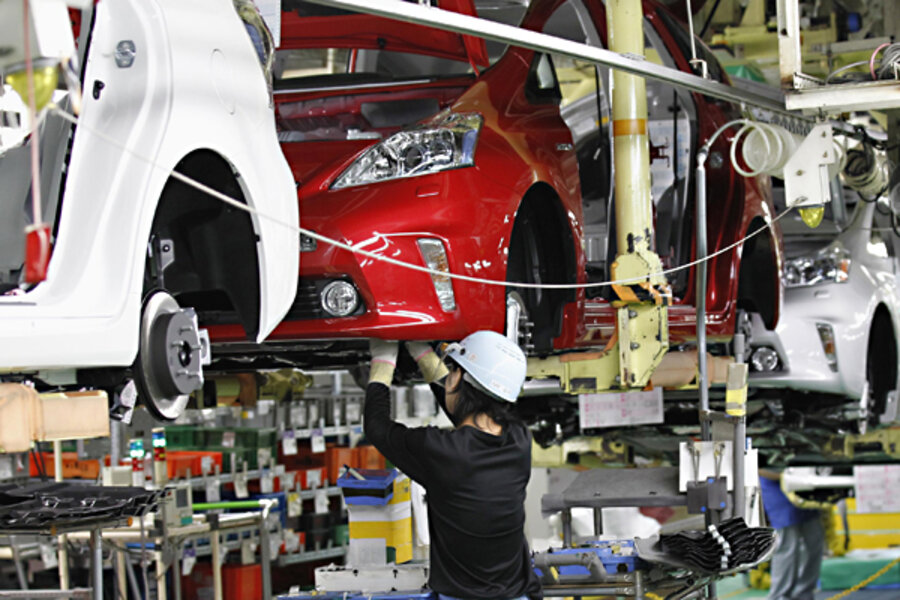No, machines aren't stealing our jobs
Loading...
Despite a modest recovery the last few months, the U.S. labor market remains depressed as this chart over the employment to population ratio illustrates.
Now again the myth that this is caused by machines displacing human workers resurfaces.
Yet if that was true then productivity growth would have increased, whereas in reality it has decreased from the 1990s. when the employment rate reached an all time high. Between 1990 and 2000, average annual GDP growth was 3.4% while average employment growth was 1.45%. Between 2000 and 2010, average annual GDP growth was just 1.5% while average employment growth was 0.15% (that the employment rate has dropped is thus more than entirely due to population growth). This means that productivity growth fell from 1.95% in the 1990s to 1.35% in the 2000s. In the 2006 to 2010 period, productivity grew even slower (1.2%).






